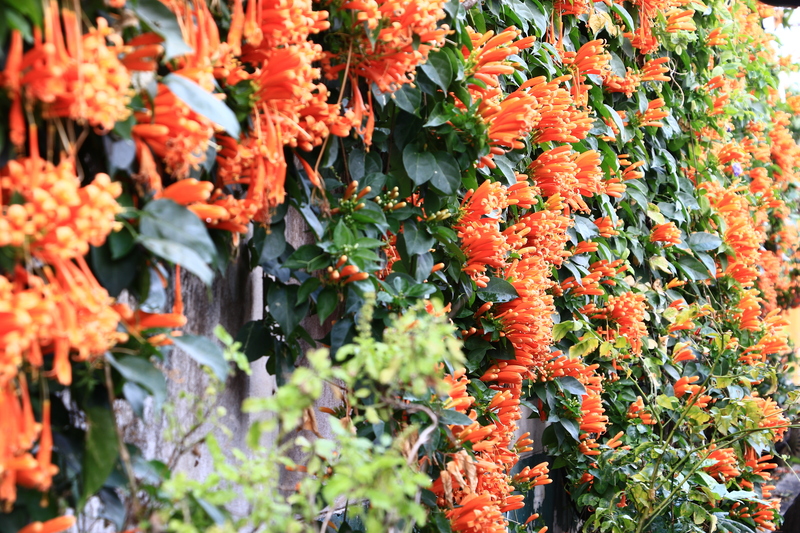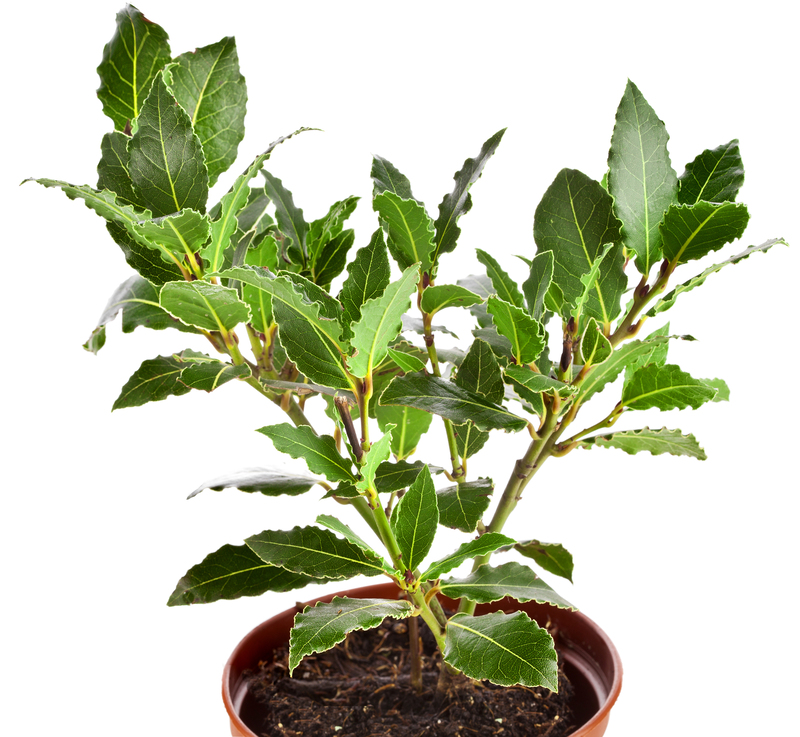Gardener's Arsenal: 3 Tips for Superior Weed Suppression
Posted on 14/09/2025
Gardener's Arsenal: 3 Tips for Superior Weed Suppression
Every gardener dreams of lush flower beds, productive vegetable patches, and beautiful borders. Yet, one persistent enemy stands in the way of these goals: weeds. Superior weed suppression not only improves the look of your garden but also helps your plants thrive by reducing competition. With a few strategic practices, you can keep weeds at bay and create a healthy, vibrant outdoor space. Below, we reveal three expert tips for superior weed suppression--consider these your ultimate arsenal for a weed-free haven!
Understanding the Weed Dilemma
Before diving into the best weed control techniques, it's important to understand what makes weeds such formidable foes. Weeds compete with desired plants for sunlight, water, and nutrients. Some spread aggressively through seeds, while others propagate through underground stems or roots. This resilience demands a multi-pronged approach for effective garden weed management.
Why Weeds Thrive
- High Reproduction Rates: Many weeds produce thousands of seeds each season.
- Competition: Weeds often grow faster than cultivated plants, crowding them out.
- Adaptability: They can thrive in poor soil conditions where other plants struggle.
Knowing your enemy is the first step to building a robust gardener's arsenal for weed suppression.

Tip 1: Mulch Your Way to Success
The Power of Mulching for Weed Prevention
Mulching is one of the most effective and environmentally friendly tools for weed control in gardens. By acting as a barrier, mulch blocks light from reaching weed seeds, significantly reducing germination. In addition, mulch helps retain soil moisture, moderate temperature, and improve soil structure--all of which support healthy plant growth.
Types of Mulch and Their Weed-Suppressing Strengths
- Organic Mulches - These include straw, grass clippings, shredded leaves, wood chips, and compost. Organic mulches eventually decompose, enriching the soil while continuing to suppress weeds.
- Inorganic Mulches - Examples include landscape fabric, black plastic, or gravel. These offer longer-lasting coverage, ideal for permanent plantings or pathways.
For superior weed suppression, apply mulch 2-4 inches deep. Avoid piling mulch against plant stems to prevent rot and pest problems. Refresh organic mulch annually to maintain its barrier against weeds.
Mulching Tips for Maximum Results
- Weed Before You Mulch: Remove existing weeds to prevent them from sprouting through the mulch.
- Use Quality Mulch: Avoid mulch with weed seeds or invasive plants.
- Combine with Landscape Fabric: For areas prone to persistent weeds, combine a layer of landscape fabric under organic mulch for double protection.
With strategic mulching, you turn your garden beds into a weed-resistant fortress.
Tip 2: Smart Planting for Natural Weed Suppression
Dense Planting and Ground Covers
One of the best-kept secrets in organic weed suppression is maximizing plant density. The more ground your desired plants occupy, the less room weeds have to grow. By choosing the right plants, spacing them properly, and using ground covers wisely, you can establish a self-sustaining defense against invasive weeds.
Best Practices for Plant-based Weed Suppression
- Close Spacing: Space plants closely enough that, when mature, their leaves shade the ground, blocking sunlight from reaching weed seeds.
- Living Mulches: Use low-growing ground covers, such as clover or creeping thyme, between larger plants to crowd out unwanted seedlings.
- Succession Planting: As soon as one crop finishes, plant another in its place. This reduces bare soil, which weeds exploit to gain a foothold.
Top Ground Covers for Superior Weed Control
- Creeping Jenny (Lysimachia nummularia)
- Ajuga (Ajuga reptans)
- Sweet Woodruff (Galium odoratum)
- Vinca Minor
- Clover (great for vegetable beds)
By actively planning your plantings, you let nature's own competition work in your favor. Not only does this reduce the time spent weeding, but it also supports biodiversity and a healthier garden ecosystem.
Tip 3: Early and Regular Intervention
The Importance of Timely Action
Even the best mulching and planting strategies require vigilance. The most effective gardener's arsenal for weed suppression includes early and consistent weed removal. Once weeds mature, they develop extensive root systems and set seeds, making them much harder to eradicate.
Techniques for Effective Weed Removal
- Hand Pulling: For small patches of weeds, pulling by hand is safe and precise, especially when the soil is moist. Make sure to remove the entire root to prevent regrowth.
- Hoeing: Use a sharp hoe to slice through young weeds at the soil surface. Regular hoeing after rain or watering is a fast way to keep weeds from taking hold.
- Targeted Watering: Direct water only to your plants, not the entire bed. Weeds thrive when moisture is plentiful, so targeted watering reduces their growth.
- Monitoring: Walk your garden regularly--at least weekly in growing season--to nip any weed problems in the bud.
Why Consistency Is Key
Weed seeds can remain viable in the soil for years, germinating when conditions are right. By making weed removal a regular part of your gardening routine, you prevent weeds from maturing and setting more seeds.
- Act fast: Remove new weeds before they flower and seed.
- Stay ahead: Consistent effort means less time spent overall compared to sporadic large weeding projects.
- Protect your soil: Frequent, shallow hoeing disturbs the soil minimally, preserving beneficial soil organisms.
Bonus: Sustainable Weed Control Methods
Organic and Non-Chemical Approaches
Many gardeners prefer to avoid herbicides, especially in food and pollinator gardens. The above tips are naturally sustainable, but there are a few extra methods to consider for chemical-free weed suppression:
- Solarization: Cover soil with clear plastic for several weeks in summer to "cook" weed seeds before planting.
- Flame Weeding: Pass a flame weeder over young weeds in paths or open beds (take care around desired plants!).
- Boiling Water: Pour hot water carefully onto unwanted weeds in paths or driveway cracks.
These strategies, while labor-intensive, ensure the health and safety of your garden soil, beneficial wildlife, and pets.
Frequently Asked Questions About Weed Suppression
What is the most effective mulch for suppressing weeds?
Wood chips, shredded bark, and straw are popular choices for organic gardening. For paths, a combination of landscape fabric topped with gravel is long-lasting and low-maintenance.
How often should I weed my garden?
Ideally, adopt a "little and often" approach: check and weed your garden at least once a week during the growing season, and after storms or heavy rain, which prompts weed germination.
Can I use cardboard or newspaper for weed suppression?
Yes! Cardboard and newspaper make excellent biodegradable barriers. Lay them flat on soil, overlap edges, and moisten before topping with mulch. They break down over time, improving soil structure while starving weeds of light.
Do cover crops prevent weeds?
Absolutely. Cover cropping (planting rye, clover, or buckwheat in the off-season) not only suppresses weeds naturally but also improves soil fertility and texture.

Summary: Your Gardener's Arsenal for Weed-Free Success
Weed suppression is a battle every gardener fights, but with the right gardener's arsenal--mulching, dense planting, and regular intervention--you can keep persistent weeds from taking over your green space. Remember, consistency and a few clever strategies make all the difference:
- Mulch deeply and renew annually for lasting weed control.
- Plan dense plantings and use ground covers to naturally crowd out weeds.
- Intervene early and often to stop weeds before they spread.
Whether you're starting a new garden or taming a long-established bed, these tips lay the foundation for superior weed suppression. Stay vigilant, stay smart, and let your garden flourish--weed free!
Additional Resources for Weed Control
- Books: "Weeds: In Defense of Nature's Most Unloved Plants" by Richard Mabey
- Local extensions: Contact your local cooperative extension for region-specific weed control advice
- Online forums: Join gardening communities for ongoing support and tips
Wage war on weeds with confidence! Armed with these three superior strategies, plus a few sustainable extras, your garden will remain healthy, productive, and beautiful all season long.

